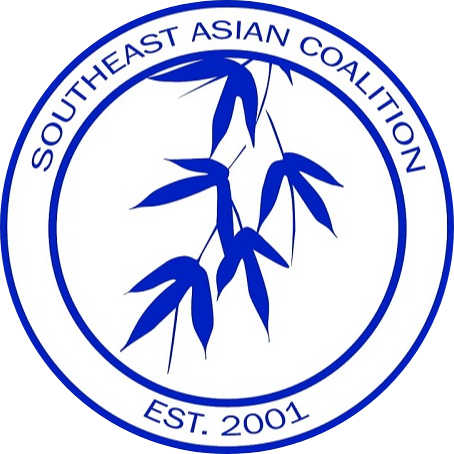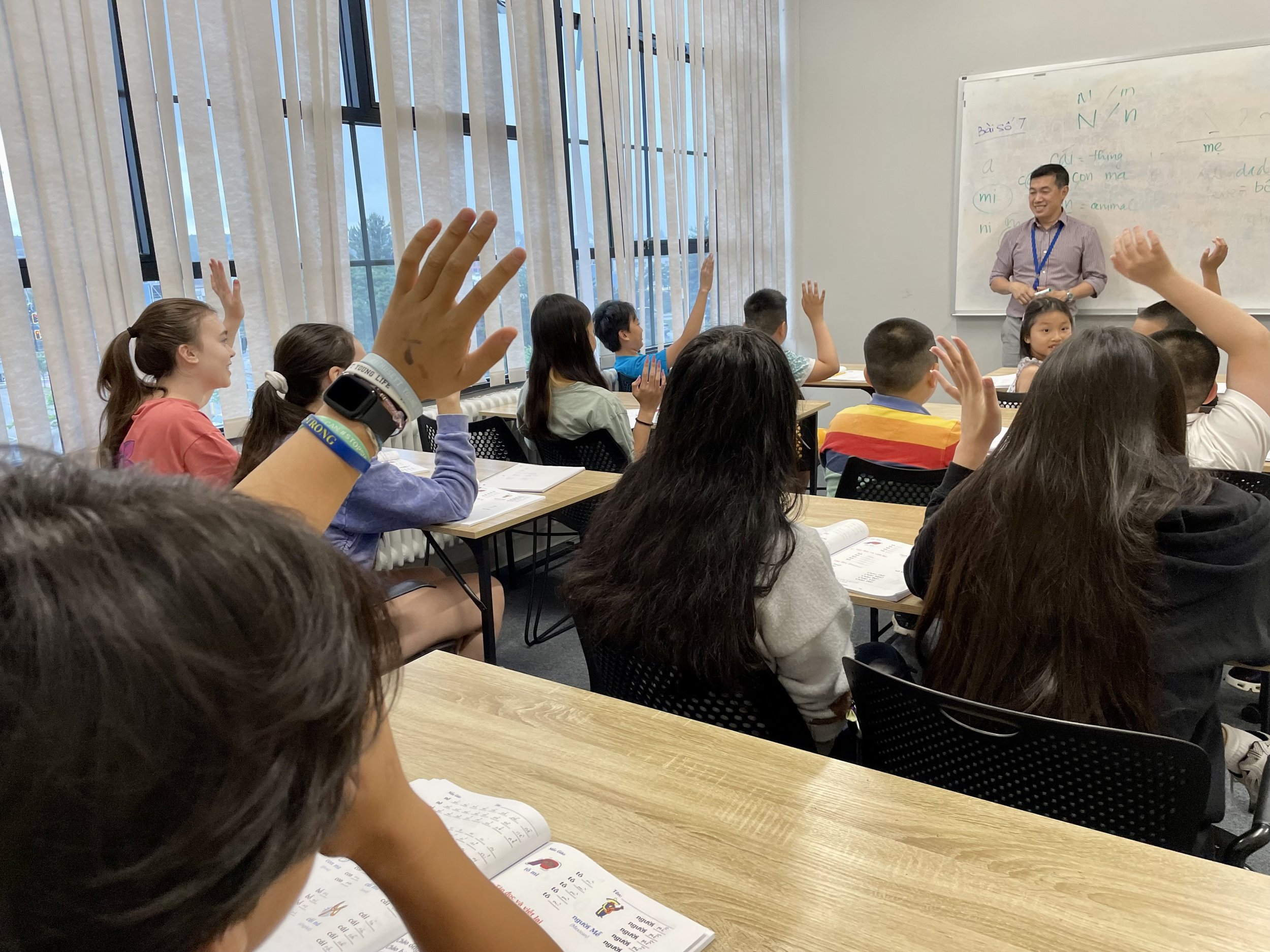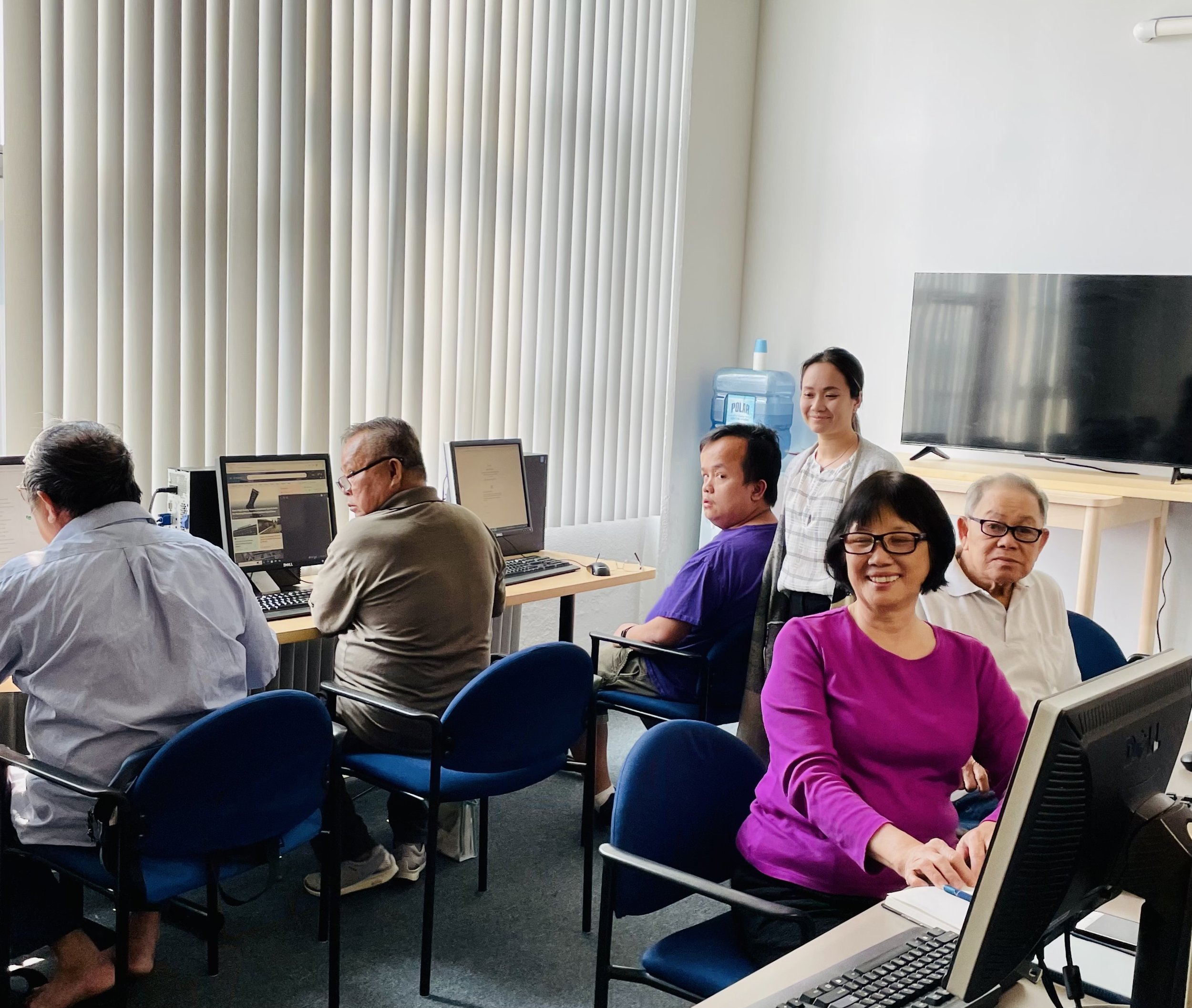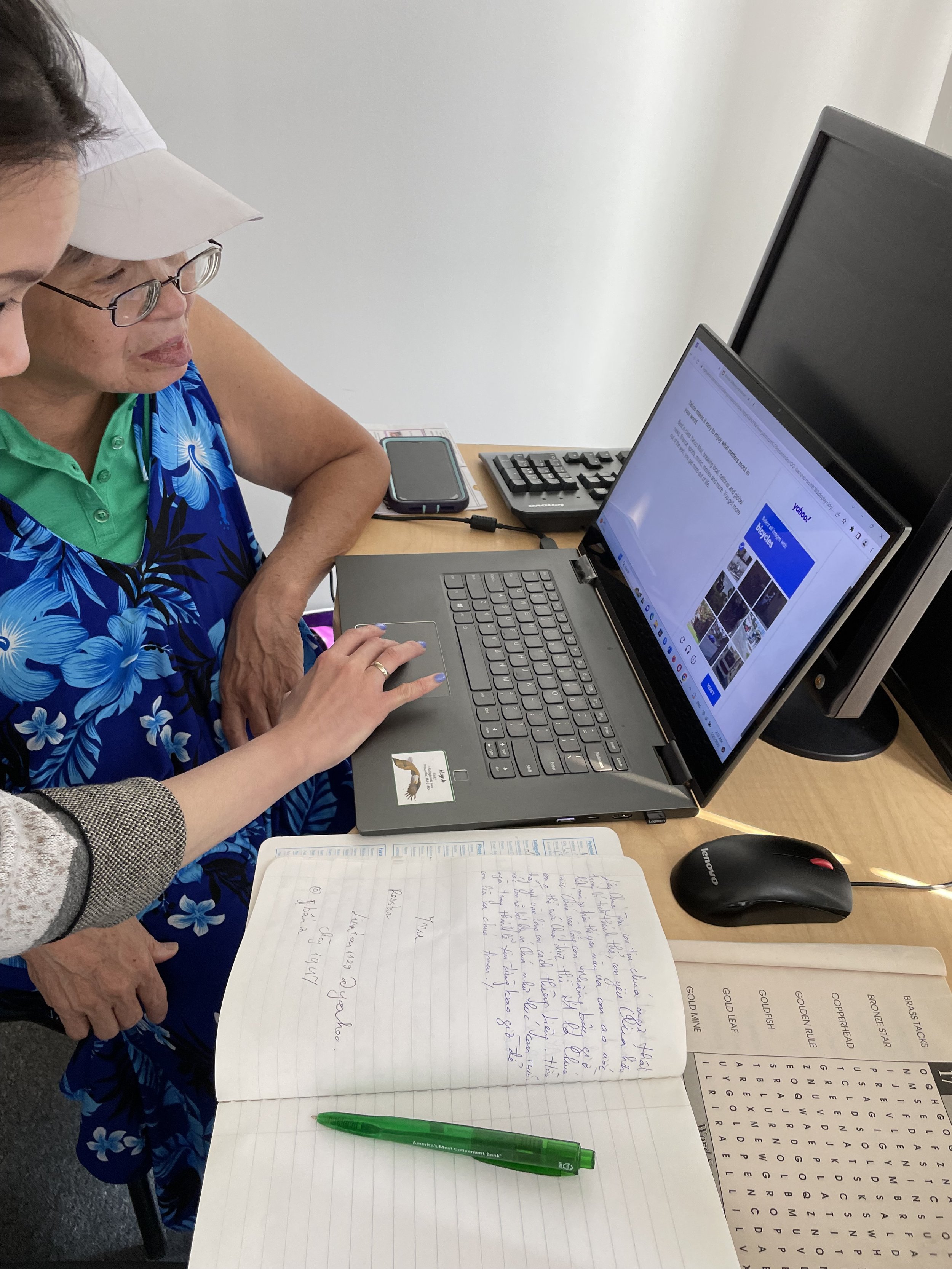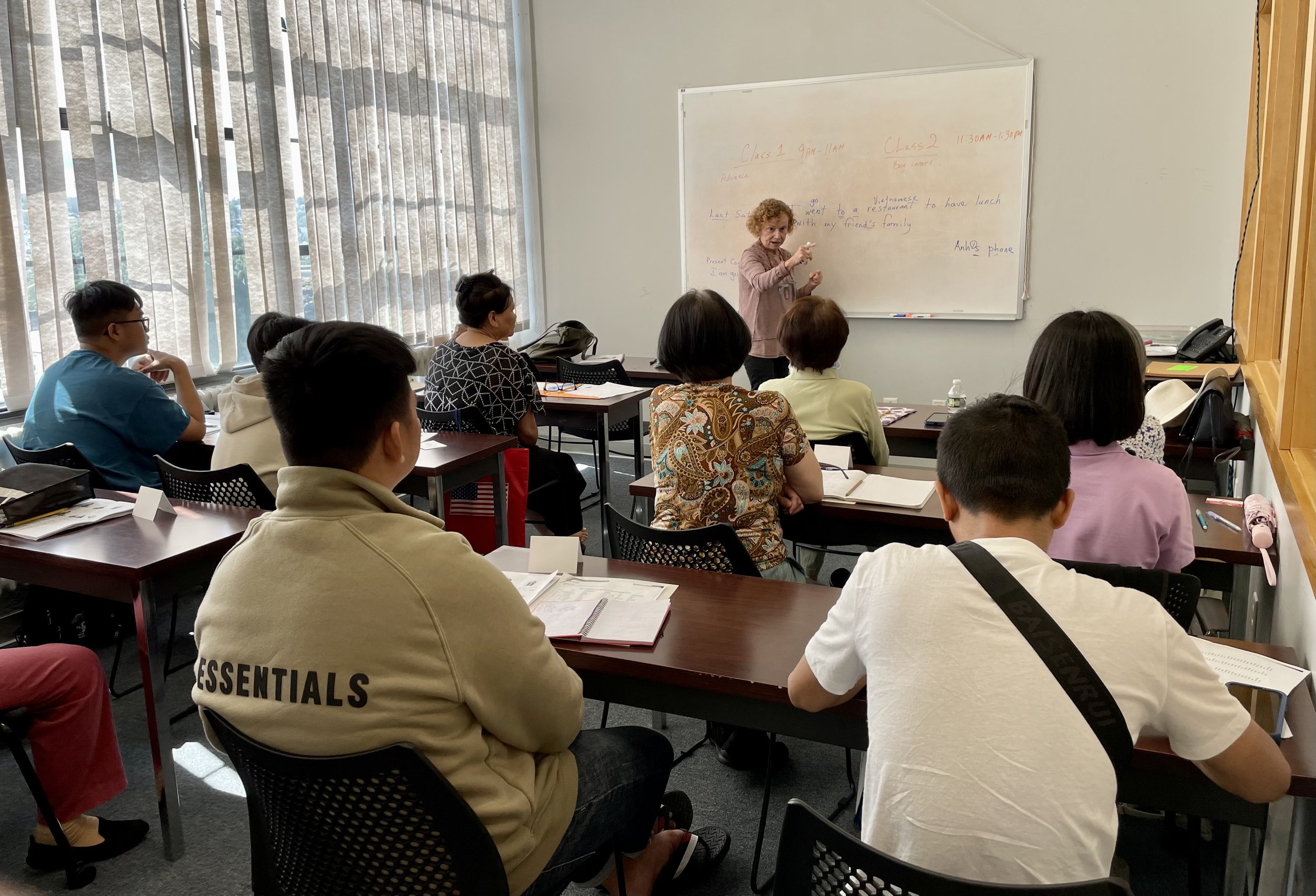Education
SEACMA provides a variety of classes and workshops to support youth, elders and members of our community. Our workshops are offered on a rolling basis.
To register for a class or to learn more about our programs, please email us at info@seacma.org or call (508) 791-4373.
Vietnamese language class
Monday - Thursday
For more information contact Nathan Chiem
Email: Nchiem@seacma.org
Computer class
Having fun learning how to open an email account and using Google search to find news.
English second language (esl) classes
Classes are taught by Brenda Seymour, a teacher with a Master’s Degree in ESL Education and with over 30 years of teaching experience. The classes are held every Tuesday and Wednesday from 9:00 am - 12:00 pm. The curriculum focuses on reading, writing and pronunciation at all levels for those seeking to improve their English fluency. Outside of this, we also aim to help our students advance in their careers by developing confidence within their English ability, social communication and management skills that extend beyond the classroom.
family literacy
SEACMA hosts various workshops under Family Literacy to help families overcome inter-generational cycles of illiteracy and poverty by providing early childhood education, adult literacy, and parenting education in a unified program. We hope that, in this program, we’re able to build upon the strengths already present but also address the needs present between parents/primary caregivers and their young children.
